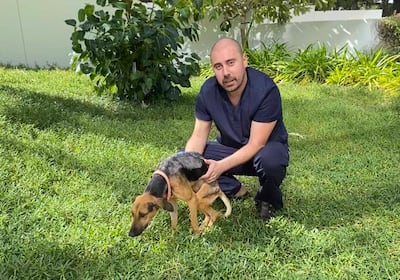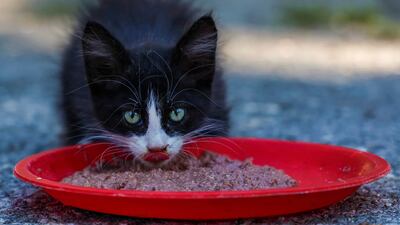Vets in the UAE have assured pet owners the virus blamed for the deaths of an estimated 300,000 cats in Cyprus is unlikely to cause similar numbers of feline fatalities here.
The relatively benign coronavirus-type infection is believed to have mutated into the more deadly Feline infectious peritonitis (FIP) and is thought to be responsible for hundreds of thousands of cat deaths, also reported in Turkey, Israel and Lebanon.
While most cats will have developed a natural immunity to coronavirus – in a similar to way that humans build immunity against the common cold – there is no licensed treatment or vaccine available in the UAE to fight against the more serious FIP.
Stay vigilant
Vets in the UAE said while the risks remained low to domestic cats, pet owners should look out for key symptoms.
“This is not a novel virus and we have many cases in cats here,” said Dr Samuel Westhead, a vet of 32 years who works at Amity Veterinary Clinic on Hessa Street, Dubai.
“It has been reported that around 90 per cent of cats in any given environment will encounter feline coronavirus.
“A large number will get the virus and around 2 per cent get clinically ill and only a very small percentage of those will go on to develop FIP.”
Although the Agriculture Ministry in Cyprus, said only 107 cases of FIP had been officially recorded, animal welfare groups suspect the actual numbers to be significantly higher.
With an estimated 1 million stray cats roaming the island’s streets, the Cat Protection and Welfare Society (Paws) Cyprus suggested about 30 per cent of the cat population had been wiped out by the virus – about 300,000 deaths since January.
UAE vets said it would be impossible to provide an exact number of deaths in Cyprus and elsewhere attributed to FIP.
The virus is difficult to diagnose and as most strays would be unvaccinated, immunodeficiency problems could have contributed to the reported deaths.
Vulnerable young cats
FIP is spread through contact with urine and blood from infected cuts, and most affected animals are between six months and two years old.

The virus does not survive well outside the cat's body and can have an incubation period from a few weeks to several months.
The original infection usually has no symptoms but the disease will have a very slow onset with a low-grade, non-responsive fever leading to depression, loss of appetite and an excessive number of white blood cells.
An infected cat will eventually become comatose with a sub-normal temperature.
The most common form of the disease, the dry form, produces adhesions between organs in the chest or abdomen, while the wet form produces large amounts of yellowish fluid and distension in these same areas.
The mortality rate is close to 100 per cent, with few treatment options available.
Unlicensed treatments
Anti-viral medication is available to treat FIP but it is expensive and not yet licensed for use in the UAE.
Raka Sarkar took in an abandoned cat and her two kittens in Dubai before rehoming all three in the UK. One of the kittens was diagnosed with FIP after it had been transported to its new home.
“The mother potentially had coronavirus but we didn’t test her in the UAE,” she said.
“The kitten later developed FIP and was diagnosed with the virus after its lungs started filling up with fluid and it couldn’t breathe.
“He was put under anti-viral medication for 80 days or so and is recovering now."
Despite the available medication, Ms Sarkar said she was offered the option to have the kitten put down but that was not something she wanted to do.
“Vets in the UK had advised it should be euthanised but I had read of the FIP treatment and, although it is expensive, I wanted to give it a try.
“The cat is now healthy and happy.”
'Not Covid-19'
Dr Amer Grizic, a vet at Animalia in Abu Dhabi, said it was important to distinguish feline coronavirus from the human form of Covid-19 and microchip animals to monitor their movement.
“This coronavirus is totally different to Covid-19 but it can mutate in a cat’s stomach and intestines into FIP form,” he said.
As a result of the infection being difficult to diagnose, Dr Grizic said some clinics were using home Covid-19 testing kits despite their inability to detect the virus.
“It can be very hard to find, a lot of clinics are using rapid tests as a final diagnostic, which makes no sense.
“It is not something new and many countries are not doing much to prevent this as there are so many street cats and illegal breeders spreading this disease.
“The best way to prevent this is to microchip the animals and connect this to identification documents so if cats do move countries there is a record.
“It is the only way to stop this disease.”


